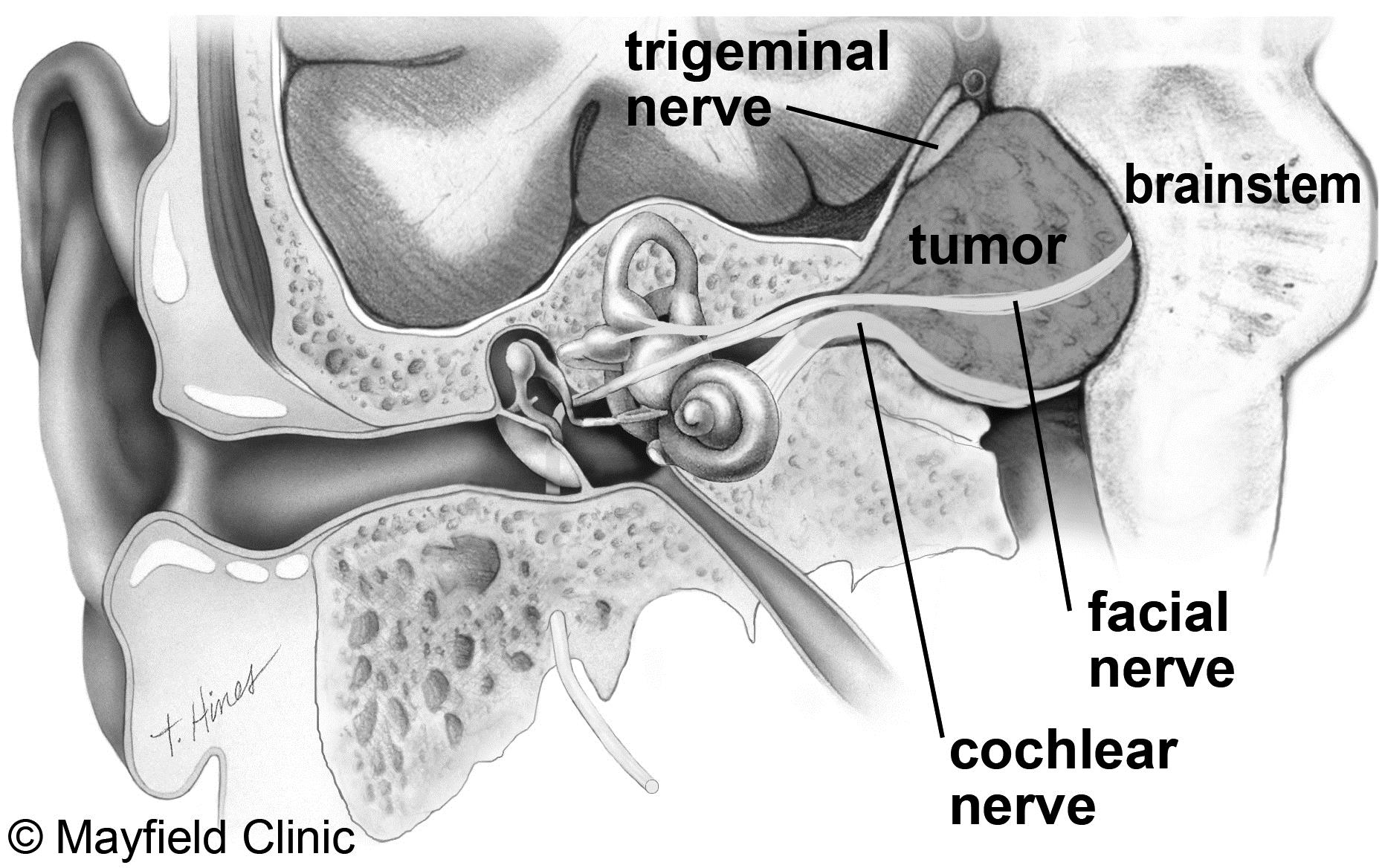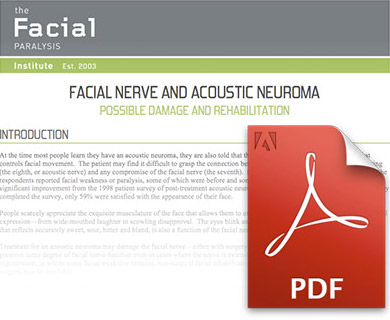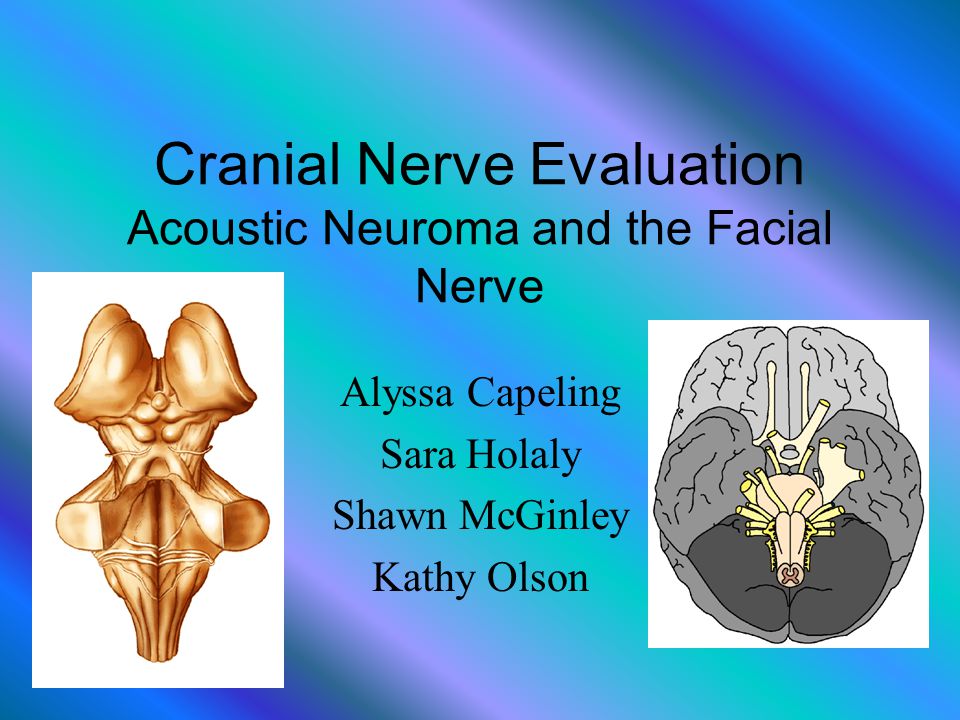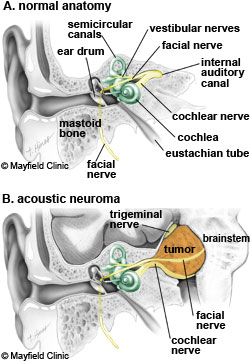
Cross-facial grafting is the procedure that involves harvesting a nerve from the leg and using it to transmit impulses from the normal facial nerve to the side with facial paralysis. Hypoglossal or masseter nerve transfers involve re-routing portions of adjacent, functioning nerves to the damaged facial nerve on the same side of the face.
Acoustic neuroma (vestibular schwannoma) An acoustic neuroma (vestibular schwannoma) is a benign tumor that develops on the balance (vestibular) and hearing, or auditory (cochlear) nerves leading from your inner ear to the brain, as shown in the top image.
Acoustic neuroma is a rare non-cancerous tumor. It grows slowly from an overproduction of Schwann cells. The tumor then presses on the hearing and balance nerves in the inner ear. Schwann cells normally wrap around and support nerve fibers. A large tumor can press on the facial nerve or brain structures.






A vestibular schwannoma (acoustic neuroma) is a non-cancerous brain tumour which grows on the eighth cranial nerve, it can also press on the facial nerve.

The translabyrinthine or transpetrosal route is useful for patients without useful hearing and a facial nerve neuroma in the internal acoustic canal. 4, 22 The indications for a retrosigmoid-suboccipital approach for facial nerve neuromas are limited because it does not afford access to the labyrinthine facial nerve.
How can the answer be improved?
An acoustic neuroma is a noncancerous growth that develops on the eighth cranial nerve. Also known as the vestibulocochlear nerve, it connects the inner ear with the brain and has two different

Facial paralysis – Acoustic Neuromas are in intimate contact with the Facial Nerve, which closes the eye, and controls the muscles of facial expression. Temporary paralysis of the face is common, but not universal, following removal of an Acoustic Tumor and usually results from nerve swelling.
Acoustic neuroma is the most common type of brain tumor. It is non-cancerous and grows on a tiny nerve that is located near facial nerves between the inner ear and brainstem.
